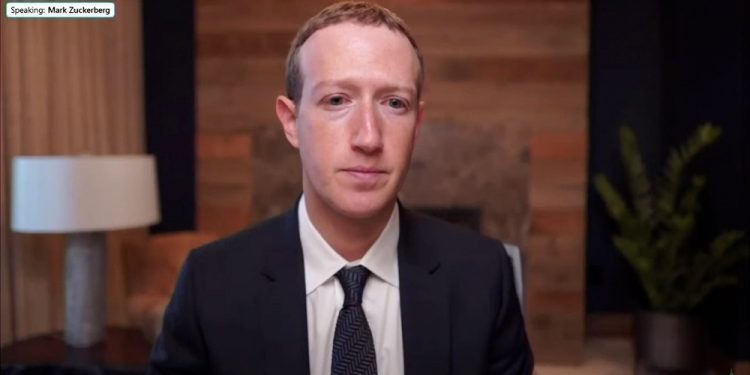A leaked video of Meta Platforms, Inc. CEO Mark Zuckerberg showed him cautioning his inner circle of the unproven effects of the Wuhan coronavirus (COVID-19) vaccines he called “experimental gene technology.”
Aware of the unsubstantiated curing effects and potential dangers of the vaccines, the tech giant chief felt compelled to alert his people regarding the shots on July 16, 2020 – five months before the initial rollout of COVID-19 vaccines.
“I just want to make sure that I share some caution on this [vaccine] because we just don’t know the long-term side-effects of basically modifying people’s DNA and RNA to directly encode in a person’s DNA and RNA basically the ability to produce those antibodies and whether that causes other mutations or other risks downstream,” Zuckerberg said in the leaked video, which was taken during an internal meeting at Facebook (FB).
Project Veritas founder James O’Keefe noted during the release of the video last year that Zuckerberg would have been “censored on the platform” if what he said to his staff in July was posted on Facebook. He would be “basically violating his own code of conduct,” O’Keefe said.
“It is yet another case of ‘one rule for thee, and another for me’ that the elite use to control the masses,” news website News Punch said.
Back in 2019, the media magnate spoke in front of students at Georgetown University about the importance of protecting free expression. He highlighted his belief that giving everyone a voice gives power to the powerless and pushes society to be better over time – a belief that is at the core of Facebook, he said.
However, the freedom to express has been throttled on Facebook and the other major social media platforms in recent years.
Meta had censored 20 million posts since start of pandemic
Last year, FB and Instagram (IG), which is also under the Meta Platforms umbrella, banned major groups, accounts and IG pages for speaking out and raising concerns and doubts about the vaccines’ adverse effects.
According to a Coordinated Inauthentic Behavior Report last year, FB removed 65 of its own and 243 IG accounts for spreading “misinformation” about the COVID-19 vaccines. They have removed more than 20 million individual posts since the start of the pandemic.
In an interview with CBS in August last year, TV anchor Gayle King asked Zuckerberg to release information on how many people have viewed and shared FB posts containing misinformation about the COVID-19 vaccine.
He admitted that FB has removed millions of posts containing misinformation from their website, but failed to answer when pressed by the host on how many people viewed or shared these posts.
“I think, to some degree, there are also different definitions that people have over what misinformation is. A lot of the stuff that’s actually the hardest for us to really address is not what I would call ‘misinformation’ but instead another category that I would call ‘hesitancy,’” he said at the time. (Related: House Republicans demand Zuckerberg surrender all communications with Fauci over covid-19 and “vaccine hesitancy” censorship.)
One of the well-known personalities that have been banned from social media is Robert F. Kennedy Jr., an environmental lawyer who emerged as one of the most influential voices during the early days of the pandemic.
Kennedy Jr., who describes himself as a vaccine safety advocate, was not impressed with Bill Gates’ track record of pushing vaccines on vulnerable populations, causing serious health problems in some cases. Subsequently, Meta “fact-checkers” banned Kennedy Jr. from Instagram for speaking out about vaccine safety.
- Gold SKYROCKETED during Trump’s first term and is poised to do it again. Find out how Genesis Precious Metals can help you secure your retirement with a proper self-directed IRA backed by physical precious metals.
Visit TechGiants.news for more articles related to social media censorships.
Watch the leaked video where Mark Zuckerberg warned his inner circle about the potential harms of the COVID-19 vaccines.
This video is from the Bit channel on Brighteon.com.
More related stories:
- Chan Zuckerberg Institute funneled cash to Wuhan lab where covid likely originated.
- FB stands FOR BIDEN: Mark Zuckerberg’s $400M grant pushed for Democrat win.
- Tyrant Mark Zuckerberg to SHAME unvaccinated people on Facebook by publicly labeling them
- Mark Zuckerberg being sued for meddling in the 2020 election.
Sources include:
- NewsPunch.com
- LifeSiteNews.com
- ProjectVeritas.com
- About.FB.com 1
- About.FB.com 2
- TheGuardian.com
- Brighteon.com
- NATURAL NEWS





